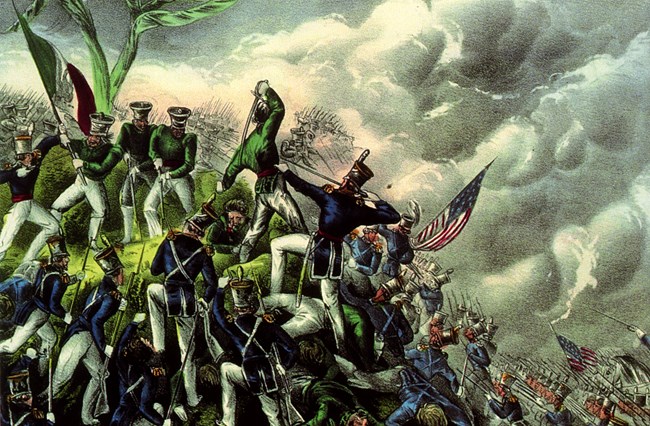Manifest Destiny and Civil War
The United States of America has one of the most complicated histories in the world. The USA has gone through several challenging times in as far as the external or internal conflicts are concerned. Before the formation of the current states and their boundaries, several years ago, the USA engaged in a civil war with Mexico in a bid to expand its territories. This was driven by the Manifest Destiny notion. Under this notion, the United States believed that it was their right to expand and stretch from the Atlantic to the Pacific. This idea was, to a large extent, driven by the ethnic group Anglo-Saxon. One of the most renowned advocates of the Manifest Destiny idea is John Sullivan who was a renowned journalist at the time and who believed that the expansion of the United States was inexorable and readily apparent. He believed that it was just a matter of time before people saw the need to develop. Sullivan and other advocates cited divine providence as the support for their destiny to expand (Brinkley, 2010).
The advocates for the manifest destiny acted relying upon three themes. The first theme was the virtue of the American people together with their institutions to experience development that would be adorned by other people of the world. This resulted in the development of the theory of American exceptionalism in which the American institutions would be used as the source of light or enlightenment to the old world. This theme, on a large extent, relied upon the development of the United States of America as a virtuous nation that would be envied by other nations or counties of the world (Adams, 2008).
The second theme involved the mission to modify and remake the world around the US in its own image. This involved not only changing the behavior of people in other countries to become part of America, but also taking their land to become part of the United States.
The third theme involved the divine providence as the justification for the expansion of the United States. Under this theme the advocates spread the idea that it was a predestined action that nobody would dare to stop. Most American people appreciated the fact that the United States was divinely chosen to become the leader of the world. This however does not mean that all of the people supported the idea of having to expand from the Pacific to the Atlantic (Crocker, 2006).
The issue of Manifest Destiny was used to a great extent by the USA leadership to justify the civil war against Mexico. During this time the USA aspired to expand beyond the original border and occupy the Mexican nation which consisted of mainly Indians that constituted about half of the nation. The occupation of the land therefore would involve making all of the Mexican tribes a part of the American nation. This resulted in paradoxes in the Manifest Destiny idea because its advocates were divided on whether or not the non-whites should be included in the American nation. The Indians in Mexico, fearing for the racism that they would face incase they were placed under the American government, armed themselves to fight for their border. Efforts to calm down the war led to the formation of states such as New Mexico (Crocker, 2006).
Manifest destiny as advocated for by some of the Americans has had a great impact on how the American people relate with the world. In fact, the neighboring nations have always been suspicious of the United States actions. The civil war that resulted after the propulsion of the idea of Manifest Destiny forever changed the relationship between Mexico and the United States (Brinkley, 2010).
References
Adams, S. P. (2008). The Early American Republic: A Documentary Reader. NY: Wiley-Blackwell.
Brinkley, A. (2010). The Unfinished Nation Volume I. New York: McGraw Hill.
Crocker, H. W. (2006). Don’t tread on me: a 400-year History of America at war, from Indian fighting to Terrorist hunting. Crown Forum.




